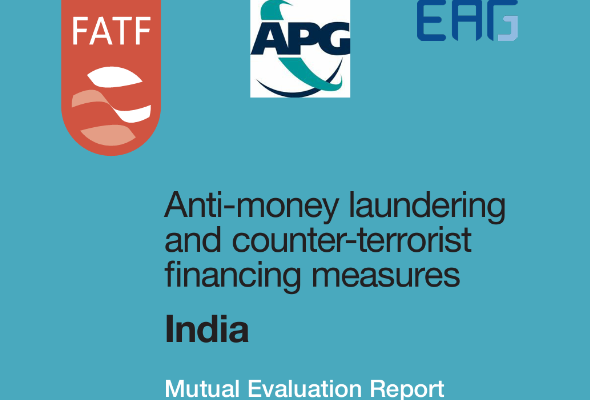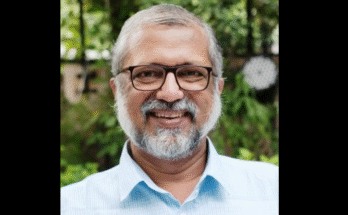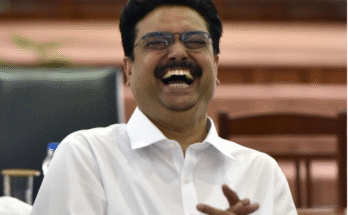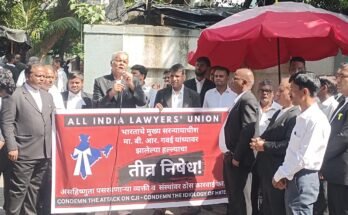25th September, 2024
Press note
PUCL expresses serious concern over the findings of the Mutual Evaluation Report released by FATF, APG and EAG of September 2024, on the ‘Anti-money laundering and counter-terrorist financing measures’ in India, which holds India “partially compliant” on Recommendation 8 concerning Non-profit organisations, on account of the risk of abuse faced by the non-profit sector in the country for conducting its legitimate activities.
PUCL reiterates its concern over the misuse of laws like FCRA, PMLA and UAPA and the laws of sedition against human rights defenders and civil society organisations with a view to silence dissent, which has the effect of jeopardising crucial human rights work and also causing a chilling effect in society.
PUCL demands that the government immediately review laws like FCRA, PMLA and UAPA and uphold the Supreme Court judgement on the law on sedition 124 (A) CrPC (which had suspended its implementation). The PUCL also demands that sec. 152 of the BNS Act, which replaces the IPC has made the criminalisation of speech which is the essence of sedition even more wide ranging. Under the BNS, even words which ‘encourage the feeling of separatist activity or ‘endanger sovereignty, unity and integrity of India have been criminalised. The above laws which through the process of periodic amendment have been made more draconian over time. The abuse of these laws against human rights defenders and civil society organisations has to be curbed.
The Financial Action Task Force (FATF) has released India’s Mutual Evaluation Report (MER) on 19th September 2024, which has found India “partially compliant” with its standards governing Not-profit organisations (NPOs / civil society organisations). India has been a member of the FATF, a Paris-based inter-governmental organization responsible for setting global standards to combat money laundering and terrorist financing, since 2010. India was also given a “partially compliant” status in its 2010 MER, as its legal and regulatory framework for NPOs was found lacking by FATF standards. Despite the passage of fourteen years, India appears to have made little to no progress in implementing FATF’s recommendations in correct spirit.
Read full report here:
The recommendations in the current MER only confirm the apprehensions expressed by Indian civil society organisations, including PUCL on earlier occasions that laws and regulations ostensibly brought in by the Indian government to regulate organisations and control financing for terrorist activities, are actually being used to clamp down on, even stop, the vital work of civil society organisations, thereby jeopardising civil liberties and silencing human rights defenders. While holding India “partially compliant” under Recommendation 8 concerning Non-profit organisations, some of the findings of the MER 2024 are:
(1) The measures, including laws and regulations which enhance scrutiny on the foreign contributions received by civil society organisations are not directed to solely mitigate terror-financing risks.
(2) These measures do not always specifically target the non-profit sector indulging in abuse for terror-financing, so that proportionate and effective action is taken to address the risks identified.
(3) While 7500 civil society organisations have been identified as high risk, India has not demonstrated that this is based on risk of terror-financing abuse. This enables punishing and dissolving of organisations without any connection to terrorist financing.
(4) Scope and purpose of the FATF-driven policy, Foreign Contribution Regulation Act (FCRA) is broader than the intended purpose of preventing terrorist-financing.[1] Monitoring and supervision under the regulations is in relation to all foreign funding and not high risk ones or high risk origin ones for terror-financing.
(5) Terror financing was not central to the 2020 amendments to the FCRA, which were implemented without adequate consultation with NPOs, impacting their activity and operating models. This resulted in NPOs not being able to use foreign funds through third-party implementers and negatively impacted implementing models of some NPOs.
(6) While authorities have been implementing the regulations, they have not been working with the civil society organisations to develop and refine best practices to address terror-financing risks and vulnerabilities to protect the non-profit sector from terror-financing abuse.
(7) India has several legislative mechanisms to address the risk of NPOs being used for terror-financing abuse, but the implementation and NPO outreach conducted by the authorities under these mechanisms is not coordinated or risk-based.
The MER 2024 accordingly acknowledges the overbroad and disproportionate nature of the existing laws regulating foreign contributions or which provide for offence of terror-financing. The report also notes that the sanctions under the laws have been mostly imposed on the non-profit sector for non-terrorist financing related reasons. Infact, it holds India partially compliant on account of India’s supervision and monitoring not being based on terror-financing and the cooperative working with NPOs being found lacking.
The FATF’s conclusion that India is not fully compliant with its recommendation 8 standards in the MER 2024, only points to the need to prevent the misuse of FATF standards by the Indian government through laws such as FCRA against civil society organisations. PUCL has raised concerns on the draconian nature of the FCRA law, as amended from time to time, and also condemned the growing trend under the present regime of targeting civil society organisations on allegations of FCRA violations and the arbitrary refusal to extend license to receive funding from foreign sources. This has not only affected the functioning of civil society organisations in India but also adversely impacted important human rights interventions and advocacy work that they were involved in. The CBI has launched false and frivolous cases against acclaimed human rights organisations like Sabrang, Lawyers Collective and People’s Watch. Organisations such as Greenpeace and Amnesty International India were forced to stop their work in India following suspension and freezing of their FCRA accounts.
Legislations like the PMLA are basically designed to check financial fraud, usually committed by the corporate for-profit sectors. Agencies such as the ED which were set up for this purpose now investigate alleged ‘money laundering’ by civil society organisations. Clearly the PMLA is being used to target the opposition to the government be it political or emanating from civil society.
The FCRA is being used to target and silence civil society organisations in violation of Article 19 of the Indian Constitution, which provides for freedom of speech and expression, freedom of association and assembly, and the freedom to work. The FCRA law also falls foul of the International Covenant on Civil and Political Rights (ICCPR) and the UN Declaration on Human Rights Defenders. It is pertinent to recall here that in June 2016, the UN Special Rapporteurs on Human Rights Defenders, Freedom of opinion and expression and Rights to Freedom of Peaceful Assembly and Association had issued a joint communication calling upon the Indian Government “to repeal the FCRA, which is been increasingly used to obstruct civil society’s access to foreign funding, and fails to comply with international human rights norms and standards”. Not only has that not been done till date, instead in 2020, even more onerous provisions were introduced in the FCRA adversely impacting the working of human rights organisations across the country. The International Commission of Jurists strongly criticised the 2020 amendment, noting that “the restrictions in the Bill continued a larger pattern of threats and harassment faced by civil society in India.”
Pursuant to the amendment, on 1st January 2022, the FCRA licenses of 12,580 organisations stood lapsed/ceased/rejected, leaving only 16,829 organisations with FCRA licenses. As of July, 2023, there were only 16,301 organisations with valid FCRA licenses. Meanwhile FCRA licenses of as many as 20,693 organisations have been reportedly cancelled in the last decade under the present regime. In the latest Universal Periodic Review of India adopted in March 2023, inspite of receiving several recommendations from member states to bring the FCRA law in consonance with India’s international legal obligations on the right to freedom of association, the Indian government did not accept the same. Earlier this year, FCRA licenses of organisations such as CNI Synodical Board of Social Service, Voluntary Health Association of India, Indo-Global Social Service Society, Church’s Auxiliary for Social Action, and Evangelical Fellowship of India were cancelled. In a latest move, FCRA license of Centre for Financial Accountability, an important think tank working on development, human rights and environment has been cancelled in July 2024.
It is important to mention here that FATF measures have also resulted in introduction of stringent provisions within Unlawful Activities Prevention Act, 1967 (UAPA) and Prevention of Money Laundering Act, 2002 (PMLA), which have been increasingly misused. However, the FATF has not only failed to prevent the risk of such misuse, but has not even acknowledged the misuse in the MER and made any recommendations to address the same.
PUCL states that FATF’s MER 2024 report confirms that it is pertinent to urgently bring about legal reforms and roll back controversial FCRA provisions, particularly the 2020 amendments, which have significantly hampered the operations of human rights organisations. PUCL calls upon the government to stop using the draconian FCRA to criminalise, vilify, silence and stop the work of civil society organisations in the country.
PUCL reiterates its demand for the repeal of the anti-terror law UAPA and for reform of the PMLA, which contains some of the most draconian provisions, so as to prevent misuse of the laws against civil society organisations and activists, and to help achieve the intended outcome of FATF standards i.e. effectively preventing money laundering and terrorist financing risks.
PUCL also notes with concern and condemns the action of the Government against non-FCRA based organisations, especially voluntary organisations, social movements, and others, by forcibly closing their bank accounts using administrative measures like KYC-procedures thereby violating their fundamental right of association and participation in legal, democratic activities.
PUCL urgently calls upon the government to stop targeting human rights defenders and imposing sanctions on civil society organisations using the legal machinery, thereby hindering crucial human rights work. The government must ensure laws passed are consistent with the international obligations concerning human rights and fundamental freedoms. PUCL advocates for a law to protect human rights defenders to enable them to carry on their work of promoting and protecting human rights for all.
Kavita Srivastava
(President)
V. Suresh
(General Secretary)




